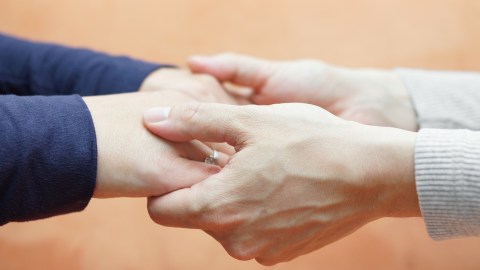Let’s Make 2015 “The Year of Living Empathically”

I began the new year on a very positive – and inspiring – note after reading Eric Liu’s latest commentary on “Radical Empathy”.
The founder and CEO of Citizen University, Liu shows us that laying aside our egos – our need to be in the right – in favor of standing in the shoes of others, is key to addressing so many of the problems that we (once again) confronted in 2014.
This insight – without question – is a wake-up call to our country as 2015 unfolds.
That’s why I think we should resolve to make 2015 “The Year of Living Empathically.”
We need to make the practice of empathy our New Year’s exercise regimen, our social-emotional diet for the next 365 days.
- Let’s practice empathy at home, with our spouses and kids.
- Let’s practice empathy in the workplace, as we give and receive feedback, and credit others’ contributions generously.
- Let’s practice empathy in the classroom, especially when kids are struggling and need our support.
- Let’s practice empathy in public service, as we encounter people who look different from us, and whose lives matter every bit as much as our own.
- Let’s practice empathy as we encounter people on the street, who may be less fortunate, and are just as human.
- Let’s practice empathy when resolving conflict, whether interpersonally or on a global-political level.
- And let’s practice empathy in local and state governments, and in the halls of Congress, so that we might truly listen in order to solve real problems
If all this sounds like a tall order – you’re right; it is.
As Brene Brown, a research professor at the University of Houston Graduate College of Social Work, points out, empathy is a challenging personal choice that requires us to become vulnerable in an effort to connect with another person.
But the good news is that developing empathy among our children, our families and our citizenry can be taught. Even better, empathy can cause change – the change we need in order to make the world healthier, safer, more civil, and more functional.
You can see this “empathy in action” in Keeth Matheny’s classroom in Austin, Texas, for example.
Matheny teaches a course for high school freshmen, most of whom are labeled “at risk.” The course is called “Methods for Academic and Personal Success” – or MAPS. His course helps students learn how to organize their time and study, as well as how to manage their emotions and build healthy empathetic relationships so they can better navigate and connect with the people around them.
Barbara Byrd Bennett, the Chief Executive Officer of Chicago’s public schools, agrees with Matheny; she believes that learning is a social process and says that we can help children feel greater emotional connection and empathy by bringing social and emotional learning (SEL) into our classrooms.
Indeed, teaching SEL skills, such as empathy, in schools has had a dramatic impact on students’ lives – and there is national data to prove it.
A recent analysis involving nearly 300,000 students, for instance, found that SEL participants demonstrated significantly improved social and emotional skills, attitudes, behavior and academic performance that reflected an 11-percentile-point gain in test scores.
These gains are truly needed, because the world in which we currently live is trying its best to cope with a social-skill deficit – but this deficit is slowly and painfully killing our society.
Teaching empathy to help children succeed in school, in the workplace, in their relationships, and throughout their lives is only a first step. Our end goal must be building better human beings – people who will one day become the architects of greater community well-being.
Let’s start the process right now by practicing empathy every day.
Duffell is the Executive Director of the Committee for Children, a 35-year-old Seattle-based nonprofit, which is helping 9 million children in 26 countries develop vital social and emotional skills to avoid violence, bullying and sexual abuse. The Committee for Children’s overall vision is to make sure we have safe children thriving in a peaceful world. http://www.cfchildren.org





